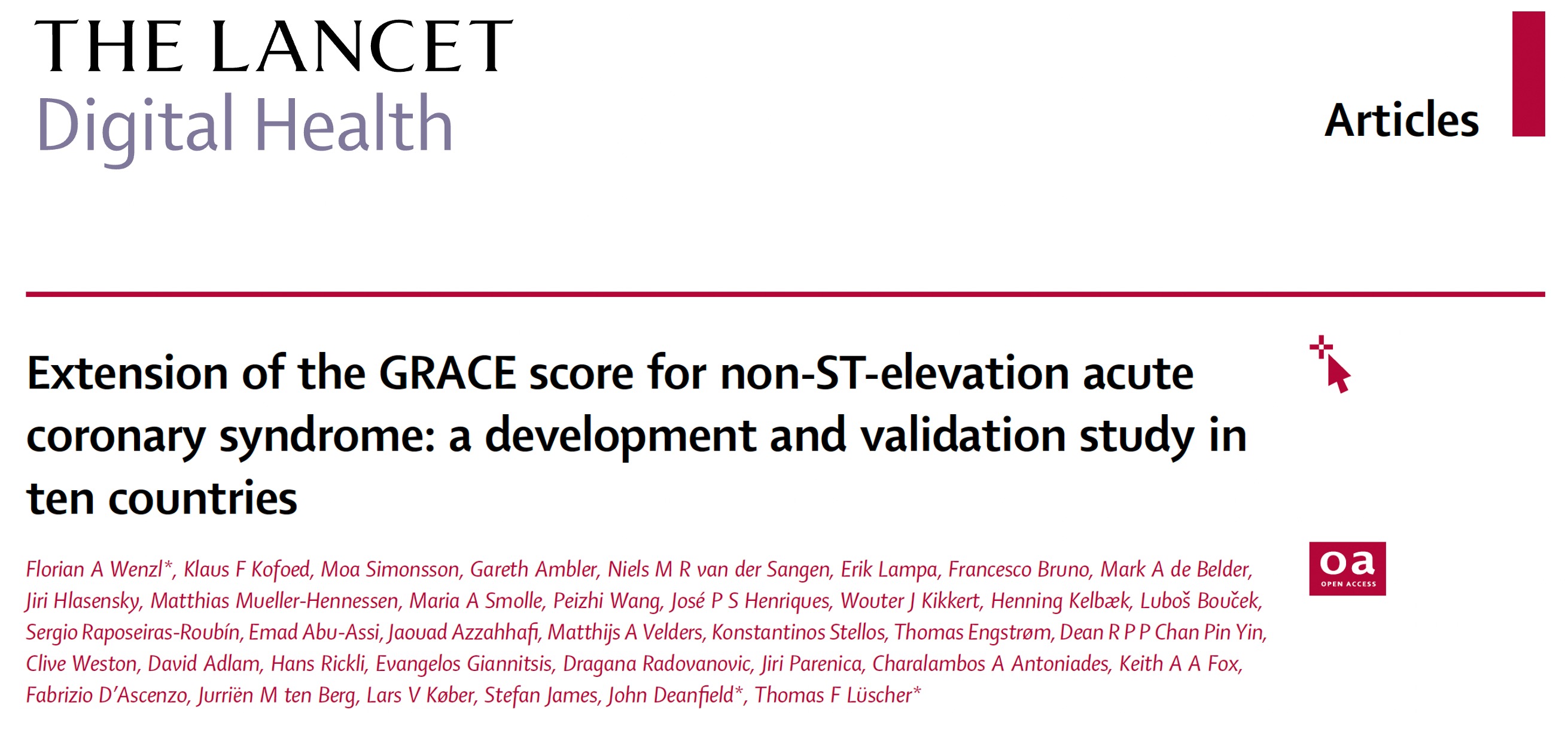AI-enhanced management of heart attack patients: a precision medicine approach

Care for patients with non-ST-elevation acute coronary syndrome (NSTE-ACS), the most common type of heart attack, is guided by the Global Registry of Acute Coronary Events (GRACE) score. However, it has long been recognised that current management stratification cannot fully capture the complexity of these patients.
A new study by Wenzl FA et al., published in The Lancet Digital Health, applies artificial intelligence to data from more than 600,000 patients with NSTE-ACS across 10 countries. The authors extend the GRACE score by incorporating sex- and disease-specific 1-year mortality and individualised treatment effect models, enabling more accurate patient stratification. The updated GRACE 3.0 scoring system provides a validated, practical tool to support personalised risk–benefit considerations.
Study highlights:
- Largest study on risk prediction in NSTE-ACS to date
- GRACE 3.0 in-hospital mortality model outperforms the previous score version
- GRACE 3.0 1-year mortality model outperforms the previous score version
- GRACE 3.0 individualised treatment effect model enables prediction of long-term cardiovascular benefit from early invasive management
- Large-scale external validation confirms generalisability
Read the free full-text article here
Try out the GRACE 3.0 Score Web Tool
Access the communication by the University of Zurich here